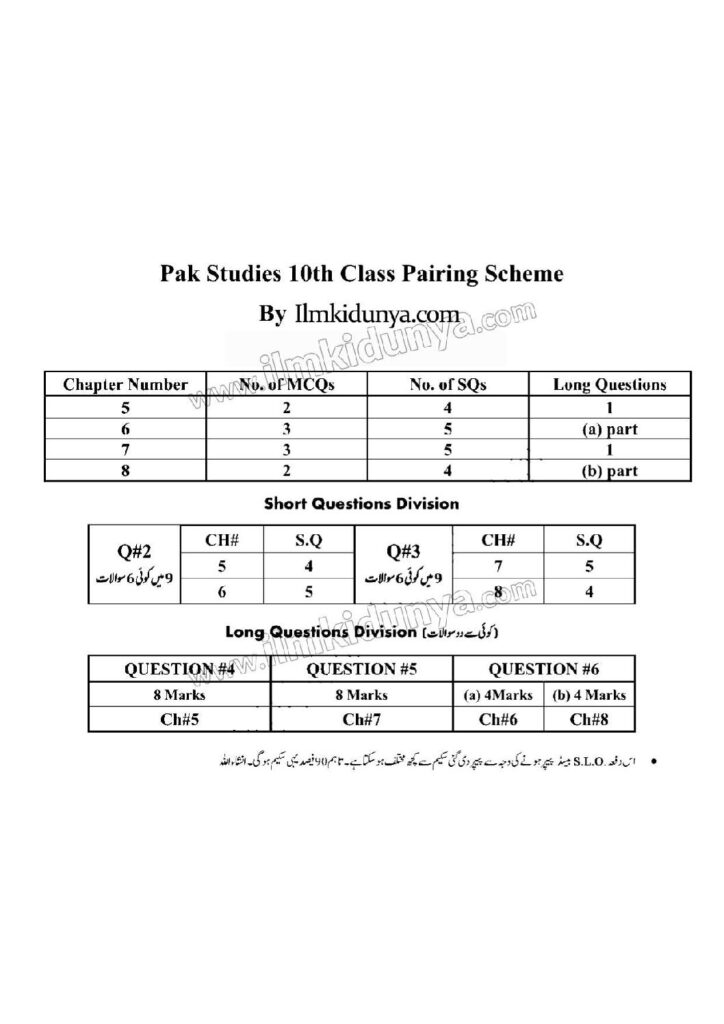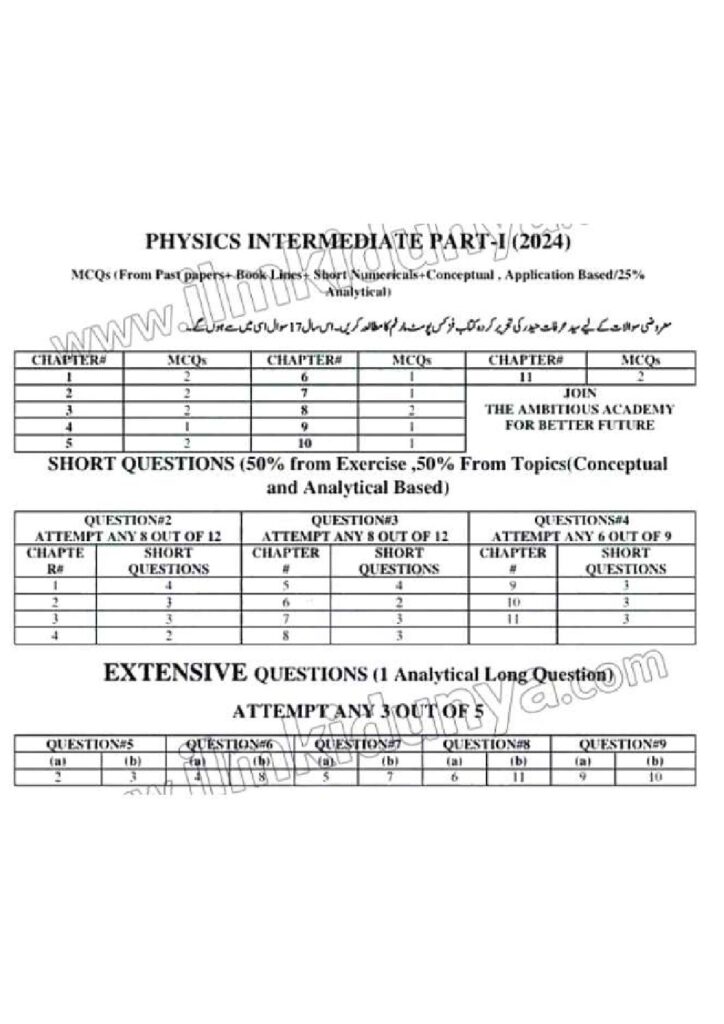10th Class Math Pairing Scheme 2025
Mathematics is one of the most important subjects in matriculation, and knowing the 10th Class Math Pairing Scheme 2025 helps students prepare smartly for the final exams. The Punjab Boards have released the updated paper pattern, which guides students about chapter-wise weightage, types of questions, and marks distribution.

This scheme ensures that students focus on the most important areas, balance practice between MCQs, short questions, and long questions, and don’t miss out on compulsory theorems.
Paper Structure Overview
The paper is designed with 75% knowledge-based questions and 25% analytical/application-based questions. This means you’ll need both a solid grasp of formulas and the ability to apply them to problem-solving.
1. Multiple Choice Questions (MCQs)
There are 15 MCQs in total, covering all chapters of the syllabus.
| Chapter | No. of MCQs |
|---|---|
| Chapter 1 | 2 |
| Chapter 2 | 2 |
| Chapter 3 | 2 |
| Chapter 4 | 1 |
| Chapter 5 | 1 |
| Chapter 6 | 1 |
| Chapter 7 | 1 |
| Chapter 8 | 1 |
| Chapter 9 | 1 |
| Chapter 10 | 1 |
| Chapter 11 | 1 |
| Chapter 12 | 1 |
| Chapter 13 | 1 |
Tip: Give special attention to Chapters 1–3, as they carry double weightage in MCQs.
2. Short Questions
Students will be required to attempt short questions from various chapters. The distribution is as follows:
| Chapter | No. of Short Questions |
|---|---|
| Chapter 1 | 3 |
| Chapter 2 | 3 |
| Chapter 3 | 3 |
| Chapter 4 | 2 |
| Chapter 5 | 4 |
| Chapter 6 | 3 |
| Chapter 7 | 3 |
| Chapter 8 | 1 |
| Chapter 9 | 1 |
| Chapter 10 | 1 |
| Chapter 11 | 1 |
| Chapter 12 | 1 |
| Chapter 13 | 2 |
Tip: Notice that Chapter 5 has 4 short questions, which means it’s very important for preparation. Chapters 1–7 together cover the majority of short questions.
3. Long Questions
Long questions carry significant marks and usually combine two chapters.
- Q5: Part (a) from Chapter 1, Part (b) from Chapter 2
- Q6: Part (a) from Chapter 3, Part (b) from Chapter 4
- Q7: Part (a) from Chapter 5, Part (b) from Chapter 6
- Q8: Part (a) from Chapter 7, Part (b) from Chapter 13
Additionally, there is a compulsory theorem question:
- The theorem will be taken from Chapter 9 or Chapter 12.
Tip: Prepare both chapters for the theorem section, as this question is guaranteed.
Summary Table – 10th Class Math Pairing Scheme 2025
| Section | Details |
|---|---|
| MCQs | 15 total; 2 each from Chapters 1–3, 1 each from 4–13 |
| Short Questions | More focus on Chapters 1–7 (especially Chapter 5) |
| Long Questions | Paired as (1+2), (3+4), (5+6), (7+13) |
| Theorem | Compulsory; from Chapter 9 or Chapter 12 |
| Marks Distribution | 75% knowledge-based, 25% application-based |
Smart Study Tips for Math
- Focus on high-weight chapters: Especially Chapters 1–7 and Chapter 5 for short questions.
- Practice theorems thoroughly: Don’t skip Chapters 9 and 12.
- Revise formulas daily: Since many questions are application-based.
- Solve past papers: To understand question trends and improve speed.
- Balance MCQs & subjective prep: MCQs can secure easy marks if revised properly.
Final Thoughts
The 10th Class Math Pairing Scheme 2025 (Punjab Boards) is a complete roadmap for exam preparation. If you plan smartly by focusing on high-weightage chapters, practicing theorems, and managing time between MCQs, short questions, and long questions, you can secure excellent marks in mathematics.
Download the official 10th Class Math Pairing Scheme 2025 PDF from your board’s website or trusted educational platforms for detailed guidelines.


